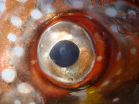(Press-News.org) No one health issue has the most impact on human health, or engenders more debate about how to tackle it, than obesity.
It has become the scourge of the health agenda, especially in the west, and it is a growing problem. According to the latest figures from the World Health Organisation, almost three-quarters of British men and two-thirds of women will be overweight or obese by 2030 - a staggering 39 million adults in total. We have one of the worst obesity records in Europe, with just six of the 52 countries in the WHO's European region with worse obesity rates for women.
We know that obesity has a highly detrimental effect on health and well-being. As a result of its consequences obesity places an enormous burden on the NHS and other social services. Take diabetes as an example - not all cases of diabetes are caused directly by obesity or an unhealthy lifestyle, but the vast majority are. According to the Impact Diabetes report, the cost of treating diabetes will rise from £9.8 billion to £16.9 billion in 25 years' time - which will equate to 17 per cent of the total NHS budget. Treatment for cardiovascular disease, another condition exacerbated by obesity, already costs the UK health system around £9 billion. These are staggering sums of money that the UK will probably not be able to afford.
The cost implications of obesity are not just confined to health care expenditure - there are ramifications for the wider economy too. In 2013, the Office for National Statistics estimates that 131 million days were lost to UK businesses through absences due to sickness and many of those illnesses can be linked to obesity. According to the CBI, absence from work through sickness is costing the UK £14 billion a year.
While there are many possible approaches to tackling obesity and its consequences in the population, it is clear that there is no single magic bullet. Rather, an arsenal of different approaches needs to be brought to bear on the complex challenge posed by obesity. For some people, there is a need to embrace treatments that clearly work. For certain types of treatments there is still a need to understand better how these treatments can work more effectively so that more people can benefit from them. However, many fundamental questions also remain about the causes of weight gain obesity, which clearly affect only a proportion of the population - although a growing proportion.
This is why this year's Plymouth Obesity, Diabetes and Metabolic Syndrome Symposium, our fifteenth, has brought together some of the UK's leading experts and opinion leaders to discuss their work in this field. Entitled "New Ideas and Controversies in Obesity", we are showing the latest thinking in a number of areas related to obesity including:
the potential appropriateness, for some people, of bariatric surgical solutions as a primary approach to treating diabetes.
the latest ideas and developments in important clinical trials.
whether obesity is a psychological disorder
new insights into the role of the gut in regulating blood glucose levels and influencing the risk of developing diabetes,
using groups in delivering group therapy as an approach to the treatment of obesity
new ideas on the importance of adipose (fat) tissue in health and disease.
new insights into the causes of diabetes in women with Polycystic Ovary Syndrome.
challenges ahead for the implementation of the latest NICE guidance on obesity.
latest findings and developments from the Plymouth EarlyBird study, which is now following up Plymouth children as adults
Our experts include: Professor Francesco Rubino, Chair of Metabolic and Bariatric Surgery at Kings College London; Dr. Jennifer Logue, Clinical Senior Lecturer at the Institute of Cardiovascular and Medical Sciences, Glasgow; Professor Jason Halford from Psychology Sciences at the University of Liverpool; Dr. Royce Vincent, Consultant Chemical Pathologist at King's College Hospital; Dr. Mark Tarrant, Senior Lecturer in Psychology Applied to Health and Dr. Katarina Kos, both at the University of Exeter; Dr. Joanne Hosking, PhD Statistician at Plymouth University Peninsula Schools of Medicine and Dentistry; and Professor Jonathan Pinkney, Consultant Endocrinologist from Plymouth University Peninsula Schools of Medicine and Dentistry and Plymouth Hospitals NHS Trust.
By bringing together such a spectrum of experts we are capturing the series of challenges faced by everyone in the field of obesity care and study: from environmental and personal factors to biology, behaviour, cutting edge science, politics and public health.
It is fair to say that it is unlikely that all these august and knowledgeable individuals will be in one place at one time any time soon, so the discussions we have here in Plymouth will have ramifications for tackling obesity worldwide.
What will be the answer? There is some work to do yet before that is clear, but our conference shows that we must accept that the problem of obesity is multi-facetted, and as a consequence requires a multi-disciplinary approach.
That is why we need expert opinion and input from across the full 'life story' of obesity - from science in the laboratory to an investigation of social influences, surgical options, psychological factors and ultimately health policy.
As world leaders in diabetes, obesity, metabolic syndrome and endocrinology, we in Plymouth are well-placed to contribute to a round of debate and action which in time and with appropriate resource could tackle the problem of obesity once and for all.
Professor Jonathan Pinkney is Professor of Endocrinology and Diabetes at Plymouth University Peninsula Schools of Medicine and Dentistry and a Consultant Physician in Endocrinology and Diabetes at Plymouth Hospitals NHS Trust.
INFORMATION:
Spider silk has long been noted for its graceful structure, as well as its advanced material properties: Ounce for ounce, it is stronger than steel.
MIT research has explained some of the material's mysteries, which could help design synthetic resources that mimic the extraordinary properties of natural silk. Now, scientists at MIT have developed a systematic approach to research its structure, blending computational modeling and mechanical analysis to 3D-print synthetic spider webs. These models offer insight into how spiders optimize their own webs.
"This is the ...
This news release is available in Spanish. The mission of neural stem cells located in the hippocampus, one of the main regions of the brain, is to generate new neurons during the adult life of mammals, including human beings, of course, and their function is to participate in certain types of learning and responses to anxiety and stress. Using an epilepsy model in genetically modified mice, the researchers have discovered that hippocampal neural stem cells stop generating new neurons and are turned into reactive astrocytes, a cell type that promotes inflammation and ...
A research team based at the University of Eastern Finland and the Turku Centre for Biotechnology have found new ways to block a pathway that may be responsible for several brain disorders, which could open the door to developing better treatments.
The protein NOS-1 generates nitric oxide, a chemical signal that is linked to neurological disorders from neurodegeneration, stroke and chronic pain sensitivity to anxiety and depressive disorders. These are now among the most common causes of disability and mortality, but decades of efforts have not led to a safe drug that ...
WASHINGTON, DC (May 15, 2015) -- More than half of popular probiotics contain traces of gluten, according to an analysis performed by investigators at the Celiac Disease Center at Columbia University Medical Center (CUMC). Tests on 22 top-selling probiotics revealed that 12 of them (or 55%) had detectable gluten.
Probiotics are commonly taken by patients for their theoretical effect in promoting gut health, though evidence of benefits is limited to a few clinical situations. "Many patients with celiac disease take dietary supplements, and probiotics are particularly popular," ...
SALT LAKE CITY, Utah, May 15, 2015 -- Myriad Genetics, Inc. (NASDAQ: MYGN) today presented clinical data for its Prolaris test at the 2015 American Urological Association (AUA) Annual Meeting being held May 15 to 19 in New Orleans, La. The results highlighted and underscored the significant ability of the Prolaris test to help physicians improve care for men diagnosed with prostate cancer.
In this pioneering study, Myriad presented important new clinical validation data that establishes an active surveillance (AS) threshold for men with localized prostate cancer. Specifically, ...
Research published today in the journal Analyst has demonstrated a new, noninvasive test that can detect cocaine use through a simple fingerprint. For the first time, this new fingerprint method can determine whether cocaine has been ingested, rather than just touched.
Led by the University of Surrey, a team of researchers from the Netherlands Forensic Institute (NL), the National Physical Laboratory (UK), King's College London (UK) and Sheffield Hallam University (UK), used different types of an analytical chemistry technique known as mass spectrometry to analyse the ...
Great Neck, NY - While the consequences of osteoporosis are worse in men than women - including death - older males are far less likely to take preventive measures against the potentially devastating bone-thinning disease or accept recommendations for screening, according to startling new research by North Shore-LIJ Health System geriatricians.
Geriatric fellow Irina Dashkova, MD, designed and led a cross-sectional survey of 146 older adults in New York and Florida that showed stunning gender differences in perspectives, beliefs and behaviors surrounding osteoporosis, ...
Great Neck, NY - With an aging Baby Boomer population and increasing numbers of childless and unmarried seniors, nearly one-quarter of Americans over age 65 are currently or at risk to become "elder orphans," a vulnerable group requiring greater awareness and advocacy efforts, according to new research by a North Shore-LIJ geriatrician and palliative care physician.
A case study and literature review by Maria Torroella Carney, MD, chief of geriatric and palliative medicine at the North Shore-LIJ Health System, zeroes in on staggering data on the prevalence and risks ...
Researchers at the University of Birmingham have shed new light on the relationship between autistic tendencies and psychosis proneness in neurotypical adults.
If a similar pattern were found in people diagnosed with these conditions, their findings would suggest that a co-occurrence of both conditions might balance, and diminish problems associated with perspective-taking difficulties.
The study, published in the journal Proceedings of the Royal Society B, indicates that while increased tendencies for either condition are associated with perspective-taking difficulties, ...
This news release is available in Japanese.
Though some large predatory fish, like tuna, have been shown to temporarily warm muscles or organs during pursuit, at least one fish may have done that one better by being able to internally generate heat that warms its heart and brain, a new study reports. This ability increases the fish's metabolic function in cold deep waters, and it shows that birds and mammals are not the only vertebrates with warm hearts. One thing that sets mammals and birds apart from vertebrates like fish is the ability to internally warm ...

